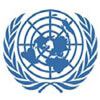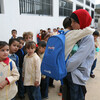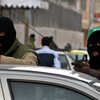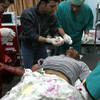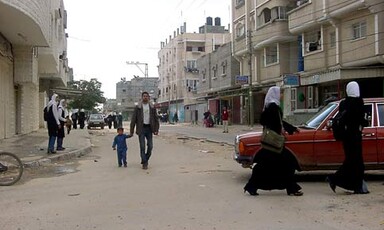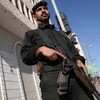
Poverty-stricken Palestinians turn to drugs
26 December 2006
Palestinian refugee Samir Hassan [not his real name] never imagined he would one day replace his UN food coupons with marijuana and heroin, despite the hunger of his children. “My life was normal, everything was normal, but unemployment is difficult and poverty is more difficult. Bad conditions led me down a worse path. I have even had to beg for money,” he said. Hassan, a 35-year-old from the Bureij refugee camp in central Gaza, cares for nine family members including his sick mother. Before 2000, he used to work in Israel’s shipping industry, but with the outbreak of the second intifada [Palestinians’ uprising against Israeli occupation] in that year most Palestinian labourers from Gaza were banned from entering Israel. Read more about Poverty-stricken Palestinians turn to drugs
